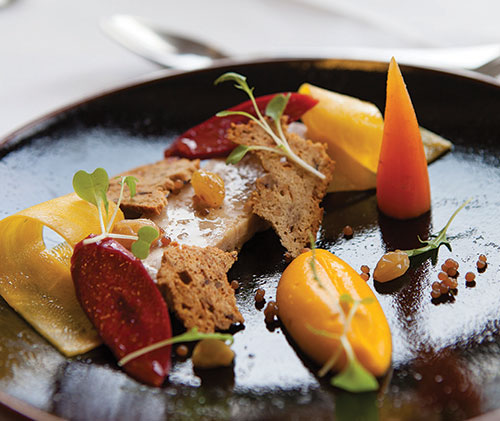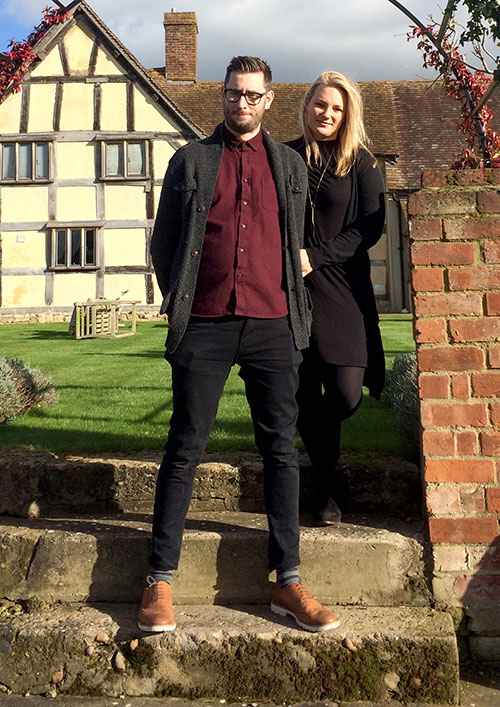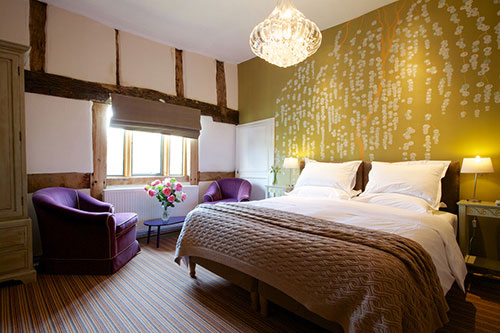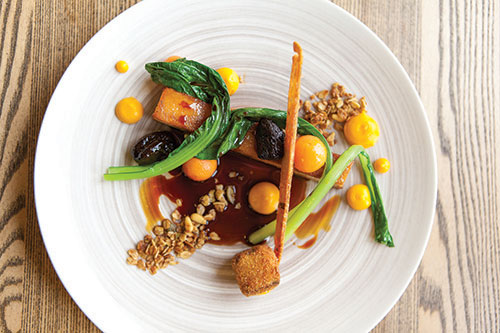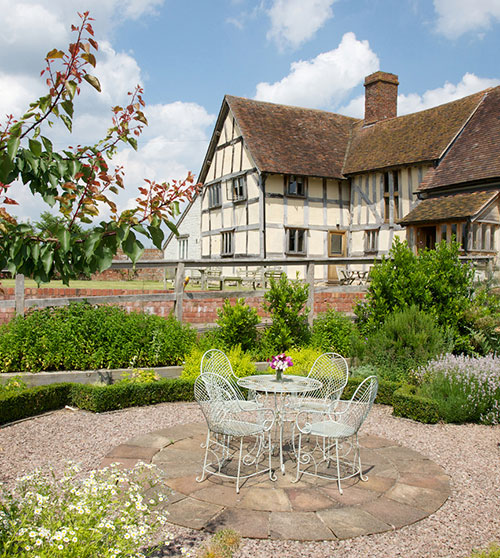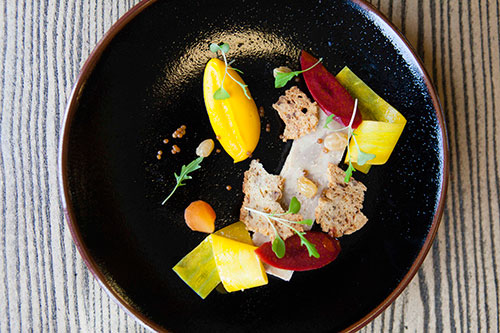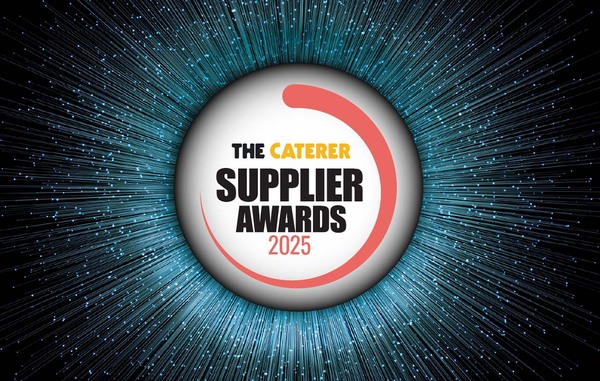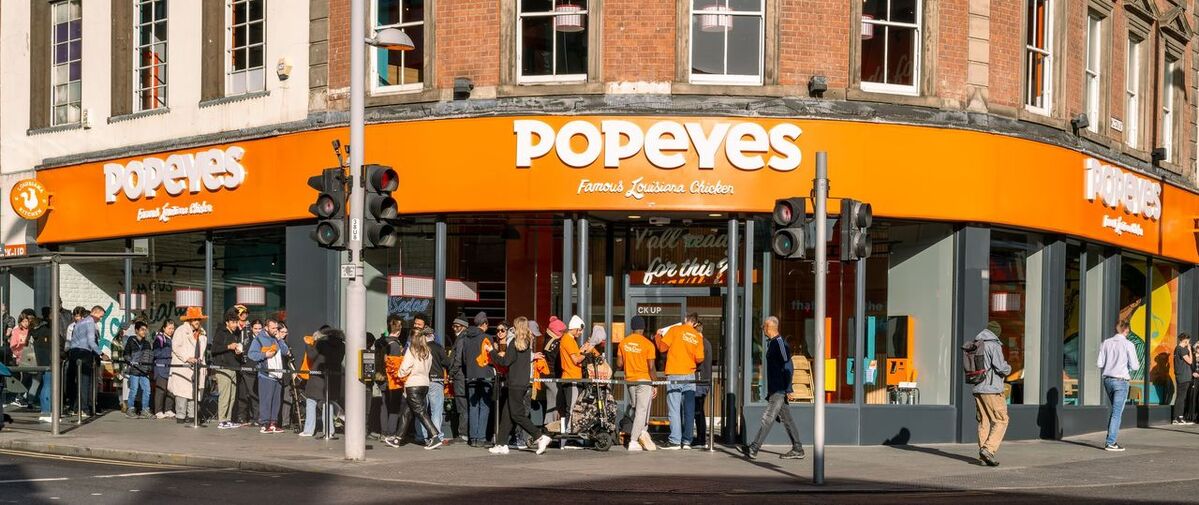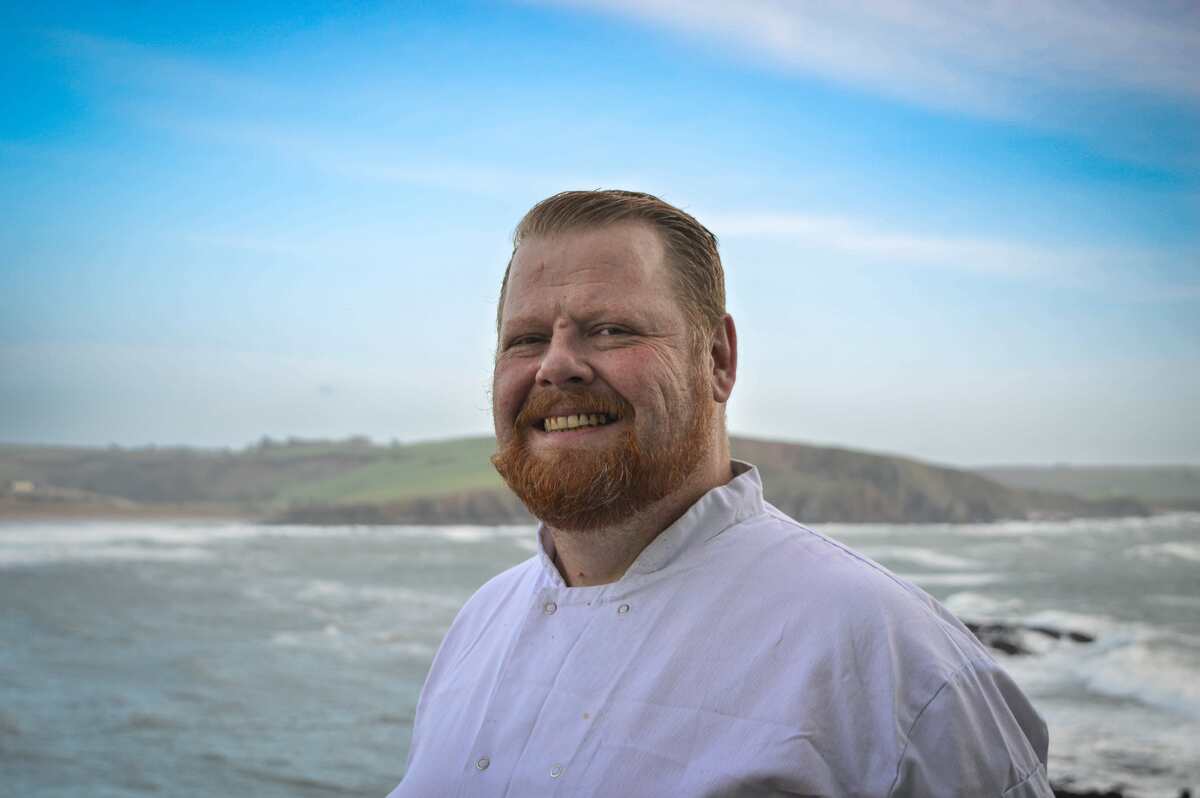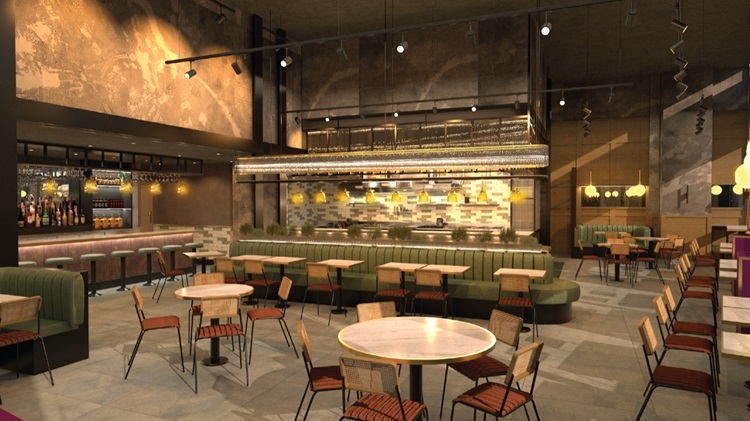MasterChef winner Mark Stinchcombe talks about his Eckington Manor family
Mark Stinchcombe was the winner of MasterChef: The Professionals 2015, but in reality the title also belongs to his co-head chef and wife, Sue, and the rest of the Eckington Manor family. Hannah Thompson reports
You could be forgiven for thinking that winning a contest such as BBC's MasterChef: The Professionals would prompt some self-aggrandisement.
The Stinchcombes have a considerable pedigree: Mark has worked at Lucknam Park near Bath (his home town), Ston Easton Park in Somerset and Driftwood in Cornwall, and completed stages at the Fat Duck, Belmond Le Manoir aux QuatâSaisons, the Square and Attica in Melbourne, Australia. Sue has worked at Restaurant Gordon Ramsay in London and staged at the French Laundry with Thomas Keller in California. The two met in 2012 while working at David Everitt-Matthiasâs two-Michelin-starred Le Champignon Sauvage in Cheltenham, and arrived at Eckington in October 2014.
The show
âI never really thought MasterChef would be the competition for me,â says Mark. âBecause I never felt I had that one person who would work day and night to ensure the operation was carrying on. But that was what was so amazing about this situation. Sue was that rock.â
âI think weâre cooking the best food we ever have now, because everything is done with,â says Sue. âIt sounds dreadful to say it, but it was a lot to get through MasterChef, and often we would look at each other and say, âwhy did we think this was a good idea?!ââ
Although Mark was actually on camera doing the cooking, to all intents and purposes, Sue was there, too. For example, when preparing for the show, Mark made a dessert with a set chocolate custard, biscuit crunch, strawberries and banana ice-cream. As he set it down on the table in front of Sue, feeling pleased, his wife said: âNope, thereâs no chance youâre going to win the competition with thatâ. And so, at the 11th hour, it was back to the cookbooks.
She canât put her finger on why. âI just said, âThis isnât you!â Itâs like when people talk about writerâs block. If itâs not flowing, come back to it. Itâs the same with a plate. Youâve got to cook from the heart.â
The couple tweaked the dessert together and came up with something that would stand up to the scrutiny of MasterChef judges Marcus Wareing, Monica Galetti et al.
âIt sounds a bit soppy,â says Sue, âBut we love each other, and [cooking] is everything. We donât work all these hours just to say, ‘oh well, itâs not bad'. It was the difference between saying âyeah!â and âmehâ.â
The food
Away from the television screens, itâs the same. Defining their creative style isnât easy, and they arenât sure how they decided to work together in the first place, other than recognising that they cheffed well together when at Le Champignon Sauvage. There was no conversation about what to do or how to do it, and when asked to describe their style, they say: âItâs honest.â
âItâs hard to define,â says Mark. âWe end up just going âum, classically-trained, British, French, classic, with twistsâ¦?â. Weâve picked up bits from everywhere, and itâs just all about big-hitting flavours that work really well together.â
There are no big trend pieces on the menu, and with an allotment, herb garden and farm on their doorstep, as much as 95% of the produce used in the kitchen â" especially in the summer â" comes from the Eckington Manor property. Dishes are created based on whatâs available, and only one dish â" the beef ribeye and braised shin â" never comes off the menu. A glut of vegetables will lead to the kitchen serving pickled amuse-bouches, and an excess of beef might lead to bresaola and other cured meats.
With all this creativity and local produce, itâs lucky that Gardner gives the couple free rein. They have been encouraged to develop personal styles while working as seasonally as possible. It was also key to Markâs MasterChef glory. When he needed to test the suckling pig dish quickly, none of their suppliers could help in time. It was only by Gardner and Harber pulling in favours that he managed it.
âTheyâre phenomenal bosses,â says Sue. âThey were helping us when Mark was coming back on the train, practising late into the night. Theyâre friends as well, and they could tell when it was getting stressful.â
The mentors
Not only do the couple have support, they also have plenty of inspiration. Sue particularly cites her time at the French Laundry, while Mark regularly mentions Hywel Jones, executive head chef at Lucknam Park, as an influence. Chris Eden, Gordon Ramsay, Clare Smyth and David Everitt-Matthiasâs names are never far away. Unsurprisingly, even Wareingâs judging in the competition helped develop Markâs style.
Mark explains: âWe used MasterChef as a publicity springboard, but cooking for those chefs was still a privilege. Marcus is an incredible chef â" Iâve admired him for years.â
Another influence is Ben Shewry at Michelin-starred Attica, in Melbourne, Australia, where Mark worked after leaving Le Champignon. Shewry quickly turned Attica around to win a host of accolades. However, after this he nearly gave up cooking due to depression, and he now takes regular days off work to play a key role in his sonâs basketball team and local charities.
Mark says: â[Shewry] told me that he had been confused. He was cooking food that he thought he âshouldâ be doing. He had to ask, âWhy am I doing this?â. Iâve never met anyone who balances cooking amazing food with having a family quite so well.â
When Sue went out to Australia to meet him, she could tell the difference. âI think Markâs cooking changed dramatically when he went to Australia,â she says. âI saw him light up. Those five months could have made or broken our relationship. They made it.â
Inspired, Mark proposed in Sydneyâs Botanic Gardens. They then travelled through New Zealand and Thailand together before returning to Pershore. And after such a whirlwind, they decided to take part in MasterChef, launch a new dining operation and get married, all in the same year. Their honeymoon then took them to the US east coast, where they visited Eleven Madison Park in New York.
âIt doesnât matter how much it costs,â Mark says. âItâs like an addiction, serious inspiration. Eleven Madison Park is so honest, classical beautiful⦠we really aspire to that. There will always be room for fine-dining. Itâs like art.â
The definition of success
Sue personally isnât happy with simply serving great food. Sheâs a strong believer in encouraging female chefs to rise up through the ranks, and is outspoken on the need for chefs to address their working environment.
âWhen I worked at Restaurant Gordon Ramsay, it was a bit of a shock,â she says. âWe were like zombies on four hoursâ sleep, and I felt I had to prove myself as a woman as well as a chef; lifting heavy stock pans, acting butch, trying to be more like the men than the men. I think a lot of women fall into that trap. I realised I actually needed to focus on the cooking.â
Thatâs not to say sheâs not tough, however. âWe still drive the pressure,â she says. âNo screaming or shouting, but I will say in the kitchen, âLetâs have a good service â" buck up now, or weâre in the shitâ. We do push it.â
On the other hand, Mark is slightly softer in approach, having learned from Chris Eden at Driftwood. âHe was a more mellow,â Mark says. âHe still wanted respect, but not in a nasty way. Now, Sue and I determine the pace. We remember how hard it was being a commis, so we will say to our staff, âGo home! Go see your family. Enjoy your time off!ââ
âYou get a lot of chefs who say that theyâve sacrificed so much for success,â says Sue. âSo, youâve got two Michelin stars but you missed your childrenâs first steps. Is that really success? Itâs difficult for us too â" weâve missed weddings, birthdays. Itâs tough.â
Mark adds: âEspecially for women [chefs], I think they can feel that theyâre sacrificing being parents. We want children, so weâve had to talk about how to juggle that.â
A team effort
So, what seemed to be a win by one man on TV last year has revealed itself to be a glorious team effort. Sue says: âWeâre riding an amazing wave at the moment. We did MasterChef to put Eckington Manor on the map, and we canât wait to get going.â
Then Gardner provides a fitting summary of how the couple work together. âMarkâs the star,â she says, âBut Sue makes him shine.â
Eckington Manor
- 260 acres of working farm and country house specialising in beef
- 5.1 miles from the town of Pershore, in Eckington, Worcestershire
- 2006 The year the farm was taken over by local businesswoman Judy Gardner
- 38 covers in the fine-dining restaurant
- 17 en-suite refurbished bedrooms, including cottages available for hire
- 1 cookery school
- 1 vegetable allotment
- 1 herb garden
How to win MasterChef
Have a support network in place
Although Mark was the one on-screen, behind the scenes everyone else was making sure he was supported and that the business carried on. âWhen Mark called me saying, âIâve got throughâ, Iâd be looking through cookbooks, on to the next thing,â says Sue. âIt was great to have Judy though â" she could tell when I was stressed.â
Know what youâre doing it for and expect increased interest
âThe main purpose of MasterChef was to build up the reputation of the place,â says Mark. And now? Now the hotel and restaurant receives bookings from far more varied clientele, many of whom booked just four programmes into the last TV series. âIt was about saying this is who we are,â says Mark. âAnd now weâre booked until April!â
Collaborate on recipes and preparation for the dishes
Mark never prepared alone. Sue was a key part of his dish designing, and helped with everything from cookbook inspiration to testing. âPretty much all the dishes came from our menus here,â explains Mark. âWeâre always trying to change a dish, elevate it, keep nudging.â
Donât hold back or dumb down your style early on
Eckington Manorâs pride and joy is its beef, which is usually served as a rib-eye with a braised shin, and sometimes as a sirloin. Highlighting this was a key part of the coupleâs philosophy on the show. âWe never thought about dumbing down our food for the show,â says Mark. âI didnât cook tactically. It wouldnât have worked.â
Judy Gardner on Sue and Mark
âIâve known Sue for many years and the door was always open here for her. When Mark came along and they got together, it was a bonus.
âI give them free rein. They are two very good people. Itâs almost like a family unit, and thatâs how it works.
âMark is a passionate person as well as being very nice, and I think that definitely came across in the programme. He was obviously out to win, but we were behind him all the way and completely prepared to back that enthusiasm.
âThis is just the beginning of the coupleâs career. Theyâve got shared passion for what they do. Theyâre almost soulmates. Itâs a fantastic situation to be able to do the things together.
âIâve always had nice chefs here, but these two have gone to a different level. And itâs just that these guys are special. Iâm sure theyâre going to go a long, long way.â



